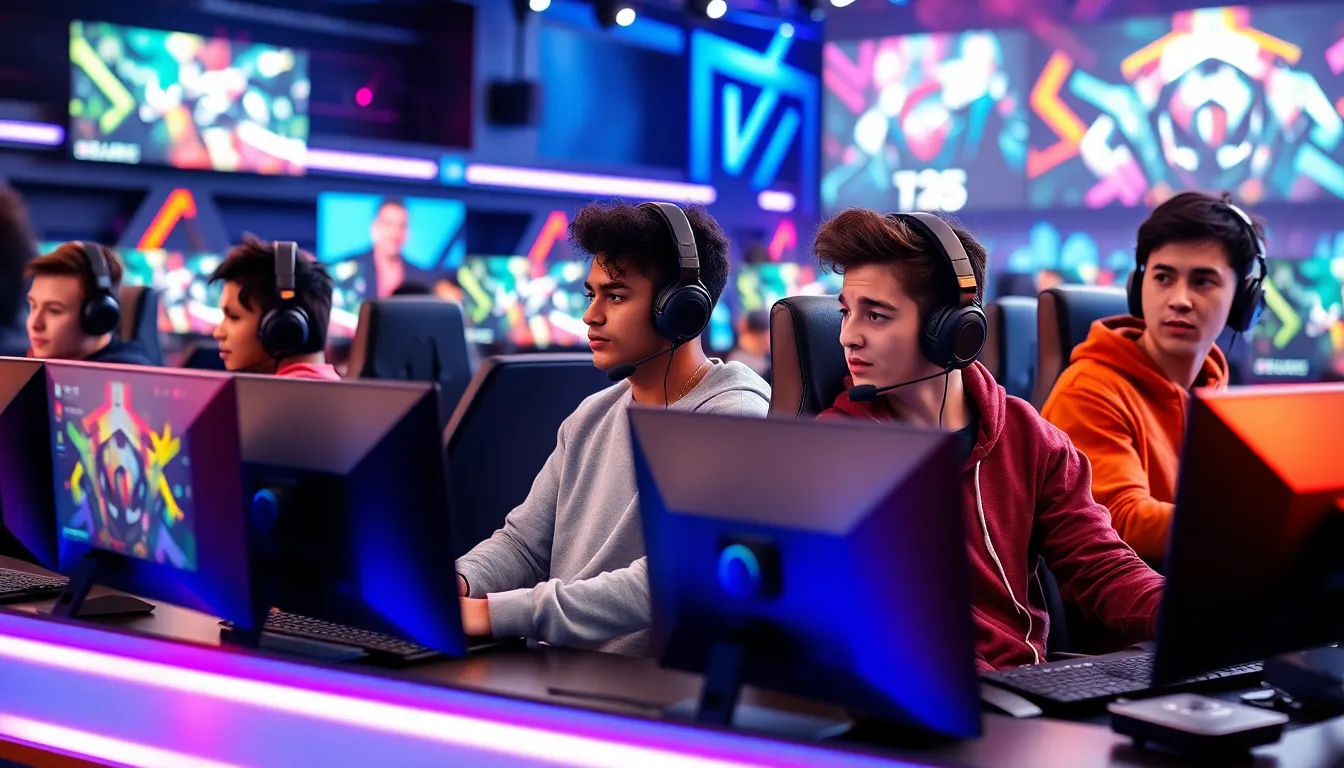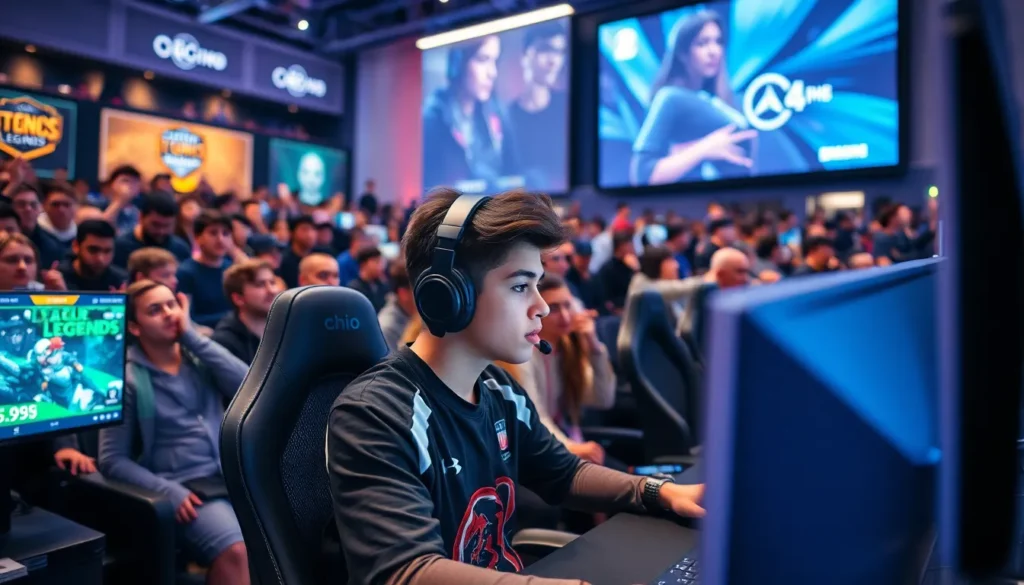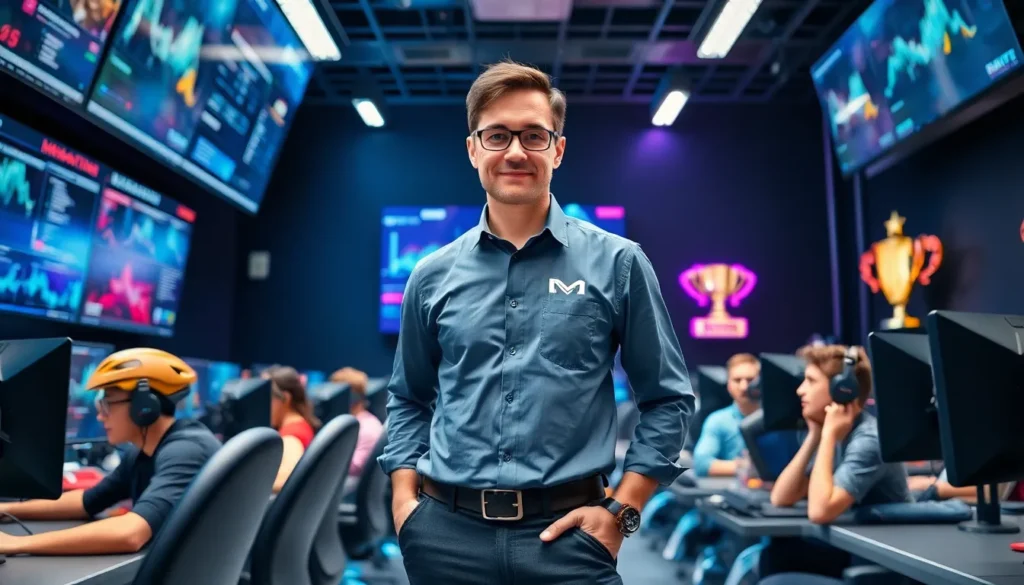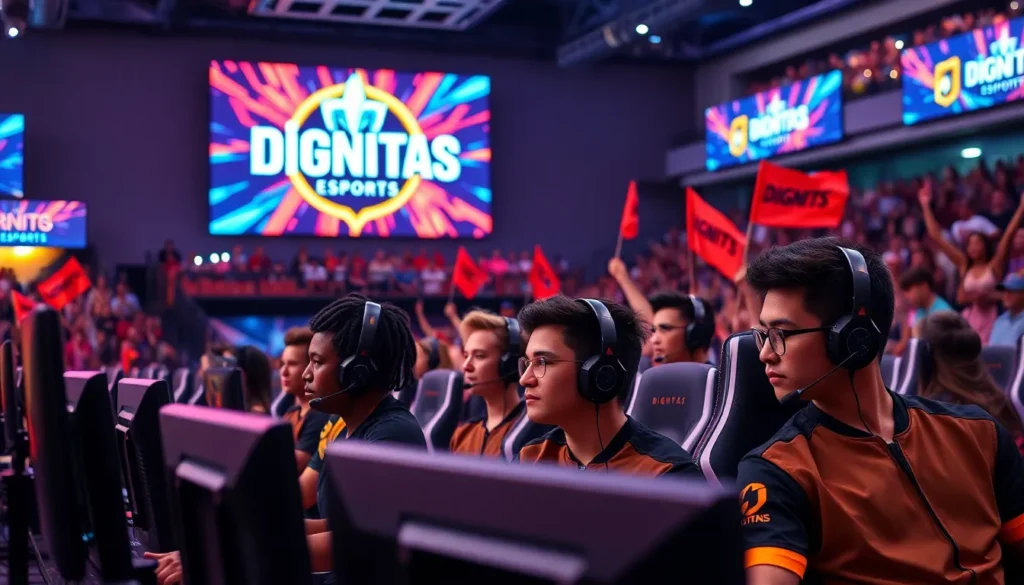Esports isn’t just for pro gamers anymore: it’s a full-blown phenomenon sweeping through the screens of Gen Z. Why is this generation glued to their monitors? Let’s jump into the wild world of competitive gaming where the stakes are high, and the memes are even higher. Prepare yourself for a journey through pixels, passion, and maybe a few questionable life choices because this is where Gen Z is making their mark.
Table of Contents
ToggleUnderstanding Gen Z: Characteristics and Gaming Preferences

Gen Z, those digital natives born roughly between 1997 and 2012, approaches gaming with a unique perspective.
This generation distinguishes itself not just by the devices they use but by how they engage with technology. They’re not merely players: they’re content creators, trendsetters, and community builders. Social media influences their choices and, as a result, their gaming preferences lean heavily towards multiplayer experiences that allow for social interaction.
Immediate gratification is a characteristic feature of Gen Z. They crave fast-paced games, emphasizing instant feedback and dynamic environments. Titles like Fortnite and Valorant have captivated their attention, allowing for intense gameplay that’s often complemented by team collaboration. More than just gaming, these platforms often become social hubs where friendships blossom.
Also, inclusivity plays a vital role. They favor games that offer diverse characters and narratives, reflecting their values of representation. If a game fails to resonate on that front, it’s likely to be left behind in the digital dust.
The Rise of Esports: History and Evolution
Esports might seem like a new phenomenon, but it has roots tracing back decades. The early days featured small tournaments primarily for PC games like StarCraft in the late 1990s and early 2000s, attracting a niche audience. But, as technology advanced, so did the scale of these tournaments.
By the mid-2010s, games like League of Legends and Overwatch took the world by storm, fueling massive audiences and professional leagues. These developments coincided with improvements in stream quality, allowing fans to watch live events from the comfort of their homes.
The transformation from hobby to massive industry is remarkable. Today’s esports tournaments can fill arenas and offer prize pools in the millions. It’s no longer an underground spectacle: it’s mainstream entertainment, often rivaling traditional sports in viewership and sponsorship.
Gen Z’s Influence on Esports Culture
Gen Z is not just a consumer of esports: they’re reshaping its culture in real-time. Social media platforms are flooded with memes, highlights, and commentary that reflect their humor and critical perspectives. TikTok and Twitter often serve as breeding grounds for viral content related to esports, which contributes to a game’s popularity.
Also, they prioritize authenticity. Gen Z gamers lean towards personalities who are genuine rather than just polished brands. This authenticity fosters genuine connections with players and streamers alike, influencing which games become popular and how they are marketed.
Another interesting development is the rise of mental health conversations within esports, thanks to Gen Z’s openness about these issues. Gamers are now advocating for balanced lifestyles, leading to discussions surrounding pressures faced in competitive gaming. Their influence is fostering a community that values mental well-being alongside competition.
Key Games Popular Among Gen Z Gamers
When exploring gaming preferences, several titles stand out as favorites among Gen Z gamers.
Fortnite has become a cultural phenomenon, offering everything from building mechanics to exclusive in-game concerts featuring popular artists.
Valorant, a strategic FPS, brings together elements of teamwork and tactical gameplay, showcasing Gen Z’s preference for collaborative experiences. The integration of hero-based characters appeals to their inclination towards diverse representations.
League of Legends remains a mainstay, especially with its engaging lore and competitive scene. The constant updates and seasonal changes keep the game fresh, enticing both seasoned veterans and newcomers.
Other titles like Apex Legends and Call of Duty: Warzone have also found footing within this generation by offering fast-paced action and opportunities for teamwork.
Esports Platforms and Streaming Services
The rise of esports owes much to the platforms that help its growth. Twitch has pioneered the way for esports broadcasting, providing real-time interaction between streamers and their audience. This interactivity is crucial: Gen Z appreciates direct engagement with their favorite gamers.
YouTube Gaming has also carved out its niche, allowing gamers to create diverse content beyond live streaming, including tutorials, highlight reels, and commentary. Also, platforms like Discord have become essential for communities to connect and strategize while playing their favorite games.
These platforms cater not just to gamers but also to fans, creating a vibrant ecosystem where diverse interactions can occur, resulting in a more engaged audience.
Career Opportunities in Esports for Gen Z
As esports continues its meteoric rise, so do career opportunities for Gen Z. Being a pro gamer is just one of many paths: roles in event management, marketing, and content creation are more accessible than ever.
Teams, companies, and organizations require analysts and coaches who understand the latest gameplay strategies. With the industry growing, there’s an increasing need for professionals in areas such as commentary, production, and even mental coaching.
For those with a passion for filmmaking or journalism, esports provides a rich landscape to explore. They can craft stories around players, events, and the ever-evolving culture of gaming, making it an attractive career avenue.
Entrepreneurship is also gaining traction within this landscape. Gen Z is not just looking to fill traditional roles: they are creating brands, developing games, and engaging their communities through innovative ideas.











